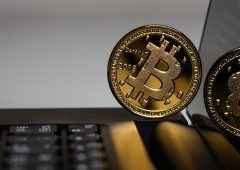Uniswap Announces $165 Million in Funding, Boosts Token Holder Rewards
21.03.2025 21:00 1 min. read Alexander Stefanov
Uniswap (UNI), a leading decentralized exchange, has secured a significant $165.5 million in funding to fuel its growth and further development.
The funding is split into three key areas: $95.4 million allocated to the Uniswap Foundation’s grant budget, $45 million set aside for liquidity incentives, and $25.1 million earmarked for operational expenses over the next two years.
The decision to approve this funding was made through two governance proposals voted on by the Uniswap community, aimed at supporting the Unichain Layer 2 and the upcoming Uniswap v4 protocols. The funding will enable these initiatives to thrive, promoting further scalability and innovation within the platform.
One of the most notable aspects of this new funding round is the introduction of a long-awaited fee-sharing model. With this new structure, UNI token holders will now receive a portion of the protocol fees—a move that had been anticipated for some time after previous attempts at implementing such a model failed.
Following the approval of the fee-swap mechanism, the price of UNI saw an increase of up to 10%, signaling strong market enthusiasm for the update. This change is expected to bring increased rewards to token holders, boosting their involvement and support for Uniswap’s growth in the DeFi space.
-
1
FTX Pushes to Dismiss Billion-Dollar Claim from 3AC
23.06.2025 15:00 1 min. read -
2
BIS Slams Stablecoins, Calls Them Ill-Suited for Modern Monetary Systems
26.06.2025 9:00 1 min. read -
3
ARK Invest Cashes In on Circle Rally as Stock Soars Past $60B Valuation
24.06.2025 19:00 1 min. read -
4
Trump’s ‘Big, Beautiful Bill’ Approved: What It Means for Crypto Markets
04.07.2025 7:00 3 min. read -
5
FTX Pushes Back Against $1.5B Claim From Defunct Hedge Fund 3AC
23.06.2025 11:00 1 min. read
Coinbase Strengthens DeFi Push With Opyn Leadership Acquisition
Coinbase has taken a major step toward expanding its decentralized finance (DeFi) presence by bringing onboard the leadership team behind Opyn Markets, a prominent name in the DeFi derivatives space.
Grayscale Urges SEC to Allow Multi-Crypto ETF to Proceed
Grayscale Investments has called on the U.S. Securities and Exchange Commission (SEC) to allow the launch of its multi-crypto ETF—the Grayscale Digital Large Cap Fund—arguing that further delays violate statutory deadlines and harm investors.
Robinhood Launches Ethereum and Solana Staking for U.S. Users
Robinhood has officially introduced Ethereum (ETH) and Solana (SOL) staking services for its U.S. customers, offering a new way for users to earn rewards on their crypto holdings.
Binance CEO Reveals What’s Fueling the Next Global Crypto Boom
Binance CEO Richard Teng shared an optimistic outlook on the future of cryptocurrencies during an appearance on Mornings with Maria, highlighting growing global acceptance, regulatory progress, and strategic reserve integration.
-
1
FTX Pushes to Dismiss Billion-Dollar Claim from 3AC
23.06.2025 15:00 1 min. read -
2
BIS Slams Stablecoins, Calls Them Ill-Suited for Modern Monetary Systems
26.06.2025 9:00 1 min. read -
3
ARK Invest Cashes In on Circle Rally as Stock Soars Past $60B Valuation
24.06.2025 19:00 1 min. read -
4
Trump’s ‘Big, Beautiful Bill’ Approved: What It Means for Crypto Markets
04.07.2025 7:00 3 min. read -
5
FTX Pushes Back Against $1.5B Claim From Defunct Hedge Fund 3AC
23.06.2025 11:00 1 min. read


